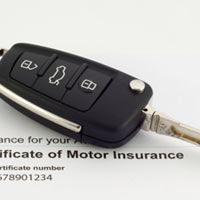Car Insurance RequirementsAt any given time, there are millions of vehicles on various roads in America like national highways, country roads, etc. The United States has one of the highest numbers of per 1,000 cars in the world. The federal government does not regulate traffic laws in the country. It is up to the states to have their own traffic laws. Some states may have similar, if not the same, sets of laws regarding traffic safety. The primary purpose of these laws is to safely and efficiently move traffic from point A to point B. That is why almost all the states have enacted laws regulating insurance requirements.
Car insurance requirements may differ from state to state. The basic purpose of buying vehicle insurance is to provide financial cover or safety against claims arising out of traffic accidents. Insurance laws are for the benefit of the drivers, passengers and pedestrians on the roads. They may provide indemnity to the driver at fault against those who have been affected by the accident; compensate them for injuries and damages to the vehicles, etc.
Some states have enacted laws requiring their resident drivers to buy only the minimum insurance coverage, while others may require a more comprehensive coverage. Interestingly, not all the states require their drivers to have car insurance but only some form of it. For example, in the state of California, insurance laws require a driver to have some form of financial responsibility. This could be in the form of liability insurance; a surety bond for $35,000, a DMV issued self-insurance certificate or a cash deposit of $35,000 with DMV.
In the state of Texas, the guilty driver is made to pay for his/her deed. The state demands that its drivers have liability insurance. A liability insurance policy pays for the other driver’s medical expenses and physical damages to the car. In addition the policy may further cover punitive damages awarded by a court; car rental; funeral costs and lost wages.
In the state of Wisconsin, Wisconsin Department of Transportation requires its resident drivers to have a minimum liability insurance policy covering property damage worth $10,000; $25,000 for injury or death of one person; $50,000 for injury or death of more than one person. In case of an accident, if drivers fail to establish that they have liability insurance, they can be fined up to $500; fraudulent proof of liability insurance can be penalized with up to $5,000.


















